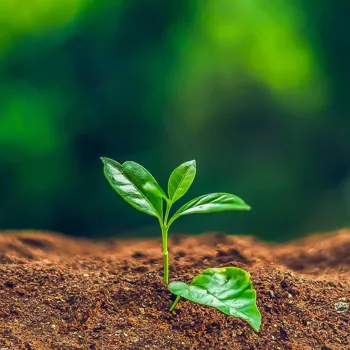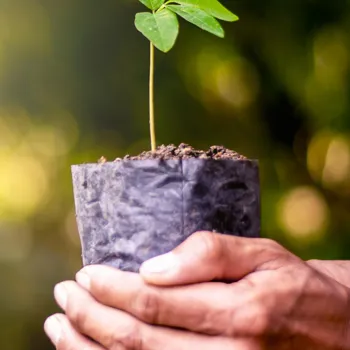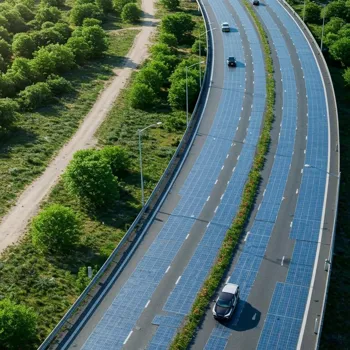Discover 10 Tips for a Sustainable Lifestyle! Easy changes for a big impact. Start your green journey today!
Namaste, readers! Are you worried about the environment, but think living sustainably is too
difficult or expensive? Don't you fret! Going green doesn’t have to be a monumental task. There are many small, manageable changes we can all make in our daily lives that collectively make a big difference. Here are 10 simple tips to get you started on your journey towards a more sustainable lifestyle, without breaking the bank:

Say Goodbye to Single-Use Plastics:
Plastic, plastic everywhere, but not a drop to sustainably drink! We are surrounded by single-use plastics – water bottles, grocery bags, straws, food containers, and so on.

These items are used for a very short time but can take hundreds of years to decompose, clogging up landfills and polluting our oceans. What to do? Carry your own reusable water bottle, shopping bags (cloth or jute ones are best!), and reusable coffee cup.
Politely refuse plastic straws at restaurants, and opt for bringing your own tiffin box for takeaways. Small steps, big impact! By making just a few switches, you can drastically cut down on your plastic consumption.
Think of it as a personal challenge: how many disposable plastic items can you eliminate from your daily routine? The more you cut, the more you help the planet Earth stay clean.
Embrace the Power of Recycling:
Recycling is one of the easiest and most effective ways to reduce our environmental impact. Familiarize yourself with your local recycling guidelines – what types of materials are accepted? Make sure to properly sort your waste and rinse out containers before placing them in the recycling bin.
Get the whole family involved! Make it a fun game to see who can recycle the most items each week. If your local community doesn't have robust recycling programs, consider advocating for better infrastructure.
Write to your local representatives, join environmental advocacy groups, and spread awareness among your friends and neighbors. Remember: every item recycled is one less item that ends up in a landfill. Try to repurpose even old items, glass bottles can be made into lamps.
Save Water, Save Life:
Water is a precious resource, and we should all be making an effort to conserve it. Simple things like taking shorter showers, turning off the tap while brushing your teeth, and fixing leaky faucets can make a big difference, like every drop counts.

Consider investing in water-efficient appliances, such as low-flow showerheads and dual-flush toilets. When watering your plants, do it during the cooler parts of the day to minimize evaporation. Collect rainwater in a tank or bucket to use on your garden.
Reusing used water is also a great step, Water used to wash rice may contain nutrients beneficial for plant growth. By being mindful of our water usage, we can help ensure that this vital resource is available for future generations. Plus, saving water will also save you on your water bill!
Reduce Food Waste:
Food waste is a huge problem, both environmentally and economically. Did you know that a significant portion of the food we buy ends up in the trash? Plan your meals ahead of time, make a shopping list, and stick to it. Avoid impulse purchases and only buy what you need, only buy what is needed.

Store food properly to extend its shelf life. Use leftovers creatively – turn them into soups, stews, or even new dishes. Compost food scraps – this is a great way to reduce waste and create nutrient-rich soil for your garden.
Food waste leads to a lot of landfills and its breakdown releases dangerous gases which are not good for the Earth. Composting helps in reducing those gases.
Switch to Energy-Efficient Lighting:
Replace traditional incandescent light bulbs with energy-efficient LED bulbs. LED bulbs use significantly less energy and last much longer, and you would be saving a lot on electricity bills. Turn off lights when you leave a room.

Invest in a smart power strip to avoid wasting energy on "phantom loads" from electronic devices that are plugged in but not in use. Maximize natural light by opening curtains and blinds during the day. Not only you save on the electricity bills, but you are also doing the job of saving the earth.
Energy saving is a step for sustainable lifestyle.
Walk, Cycle, or Use Public Transport:
Whenever possible, choose sustainable modes of transportation over driving a car. Walk or cycle for short trips. Use public transport for longer journeys. Consider carpooling with colleagues or neighbors. Regular exercise is an added benefit. Driving is not always an option.
If you are using a car, make sure the car's emission is in check. Regular checks ensure you are not increasing the Earth's temperature. With less traffic, you can make many things safer, there will be less carbon emissions.
Buy Secondhand:
Before buying something brand new, consider buying it secondhand. There are many great places to find used clothing, furniture, books, and other items – thrift stores, consignment shops, online marketplaces, and even your own friend's circle.

Buying secondhand reduces the demand for new products, which in turn reduces the environmental impact of manufacturing, transportation, and disposal. Plus, you can often find unique and high-quality items at a fraction of the price of new ones!
Buying and selling can contribute in reducing the impacts of the planet.
Support Local and Sustainable Businesses:
Whenever possible, support local businesses that are committed to sustainability. Look for businesses that use eco-friendly practices, source their products locally, and treat their employees fairly.
Ask questions about their sustainability policies and let them know that you value their commitment to the environment. You are also helping the local economy by making such purchases. Local produce is always a great option. This can also help you make new friends in the locality.
Reduce Your Consumption:
One of the most effective ways to live sustainably is to simply consume less. Before buying something, ask yourself if you really need it. Avoid impulse purchases and focus on buying high-quality items that will last. Repair items instead of replacing them.

Borrow items from friends or neighbors instead of buying them. The less we consume, the less waste we generate. Every bit counts. Consider the amount of items you are buying. Do you really need all of it?
Spread the Word:
Don't keep your newfound knowledge to yourself! Share these tips with your friends, family, and neighbors. Encourage them to make small changes in their own lives. Start conversations about sustainability and inspire others to join the movement.

Together, we can create a more sustainable future for ourselves and for generations to come. You can join environment focussed NGOs and make a great step out of this.
Remember, sustainable living is not about perfection; it's about progress. Every small change you make counts.
So, start today, and let’s build a greener tomorrow, together! Jai Hind!
AI Generated Content. Glance/InMobi shall have no liability for the content











